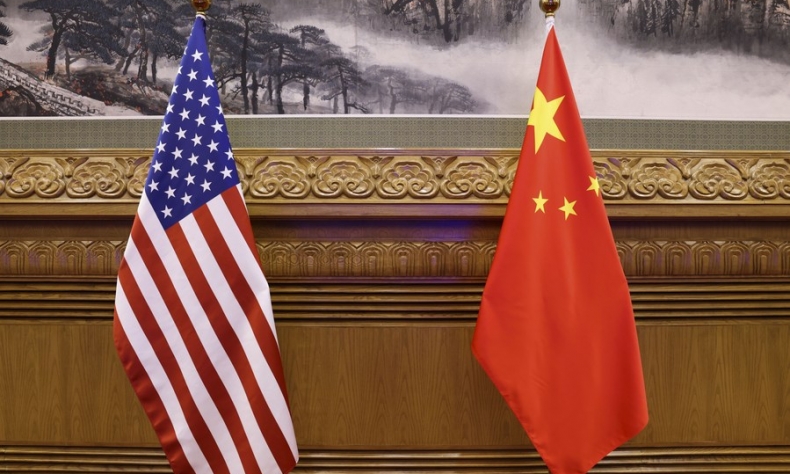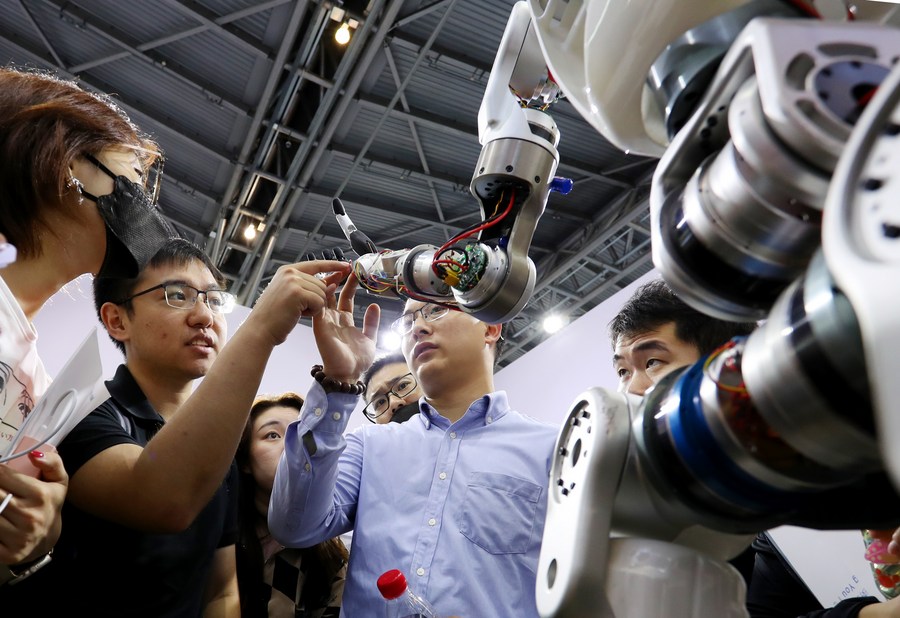Trio in a Triangle

There is no more important or honorable task for Europe than to use its moderating power to prevent China-U.S. differences from turning into open confrontation.
Wherever we look, understanding and cooperation among states is indispensable, be it to keep peace in the world, maintain economic progress or confront global challenges beginning with climate change and ending with artificial intelligence. Cooperation between the two great powers of our time, the United States and China, is of the essence. Josep Borrell, the European Union High Representative for Foreign Affairs and Security Policy, recently indicated that without cooperation between the United States and China the solution of the problems of the world is impossible. Europe is ready to contribute to the understanding between the two and work with them to solve the world´s problems.
Meanwhile, Borrell also pointed out the necessity for the EU to work with China to address global challenges and highlighted the important EU-China economic ties and their huge common political responsibilities, which make it necessary for the EU to manage relations constructively.
Currently the relations between the U.S. and China are far from friendly. Donald Trump started an economic war against China, with punishing tariffs and technological restrictions. Joe Biden has maintained Trump´s policy, adding an ideological element (democracy against authoritarianism) and reinforcing U.S. alliances in the Indo-Pacific. Now the U.S. policy has been characterized as containment, encirclement and suppression of China.
Turning to protectionism the U.S. is destroying the international economic system it created in Bretton Woods, New Hampshire, in 1944, based on the free movement of goods, services and capital. The Bretton Woods economic philosophy acknowledged the great mistake committed with the adoption of protectionism by Washington in 1930 with its Smoot-Hawley Tariff Act that implemented protectionist trade policies in the U.S. and triggered retaliation by other countries. The ensuing reduction of world trade, which in 1932 shrank to one third of its volume in 1930, was a central cause of the Great Depression, which in turn paved the way to World War II. America should not forget this historical lesson.
Economic and technological capacity are the central tenets of geopolitical power. With its technological restrictions the U.S. intends to reduce China to a second-class technological power. Having missed the Industrial Revolution, China, with its much inferior military technology in the 19th century, was defeated by Britain in the infamous Opium Wars. It was followed by the “Century of Humiliation.” The lesson has been learned. China knows that it has to be at the technological frontier in order to avoid being at the mercy of superior military powers.

To restrain the economic and technological progress of China is one of the few points of agreement of the two American political parties. But there is a minority view which considers this policy wrong. Its main representative was the Henry Kissinger, who, half a century ago, played a decisive role as the national security adviser of President Richard Nixon in the normalization of relations between the U.S. and China. He had proposed the creation of a “Pacific community” led by the U.S. and China, and, not long before his death in November 2023, criticized “the eternal penchant” of the U.S. to demonize China. Echoing this view, one hundred of “the best and the brightest” American experts in foreign and security policy signed an open letter published in The Washington Post on July 3, 2019. Tellingly titled “China is not an enemy,” it stated that in its attempt to stop China, the U.S. would hurt itself and the whole world, and its allies would not follow its lead.
On December 12, 2023, The New York Times published the findings of a study commissioned by the U.S.-China Business Council, according to which the new tariffs proposed by the House Select Committee on China would produce a loss for the United States of U.S. $1.6 trillion in five years.
According to the World Bank, between 1990 and 2022, trade liberalization, globalization and technical advancements accounted for 24 percent of the average income growth globally. For the poorest 40 percent of the world population, it was 50 percent. More than one billion people were lifted out of poverty thanks to increased international trade. The World Trade Organization says global trade grew from US $15.6 trillion in 2001 to US $40.7 trillion in 2008, when it reached its peak; then the global financial crisis and U.S. protectionism halted the rising trend. The International Monetary Fund has estimated, “The longer-term cost of trade fragmentation alone could range from 0.2 percent of global output in a limited fragmentation scenario to almost 7 percent in a severe scenario – roughly equivalent to the combined annual output of Germany and Japan. If technological decoupling is added to the mix, some countries could see losses of up to 12 percent of GDP.”
As to the reaction of U.S. allies to the economic and technological war initiated by Washington against China, the EU and its main leaders have repeatedly stated that they do not want to stop China´s economic progress, and therefore they are against decoupling as well as against a new Cold War.

European Commission President Ursula von der Leyen has said decoupling is not viable and would go against the interests of Europe. She proposed instead “de-risking,” a more targeted and limited concept. The American allies in Europe and Asia are great trading powers and giving away the Chinese market would mean unacceptable economic damage.
The American multinationals are equally dependent on the huge Chinese market, and have strongly lobbied Washington to mitigate its policy. The pressure by both allies and American multinationals resulted in the Biden administration abandoning “decoupling” for “de-risking,” even if the hawks in the U.S. Congress continue pushing for decoupling.
The EU asks China for a level playing field for European enterprises, that is, the same facilities to operate in China that Chinese enterprises have in Europe. During the 12 years that I have served in China, I have on many occasions insisted on that point with my European colleagues before the Chinese authorities. These and other differences can be solved at the negotiating table.
Europe claims “strategic autonomy” or sovereignty. An aspect of this concept is” moderating power” – already exercised over decoupling. There is no more important or honorable task for Europe than to use its moderating power to prevent China-U.S. differences from turning into open confrontation. Unless the U.S. and China reach a modus vivendi, a formula of peaceful coexistence, global peace and economic progress, as well as solutions to global challenges will be next to impossible.
Eugenio Bregolat is a former diplomat who was three times ambassador of Spain to China.
 Facebook
Facebook
 Twitter
Twitter
 Linkedin
Linkedin
 Google +
Google +










